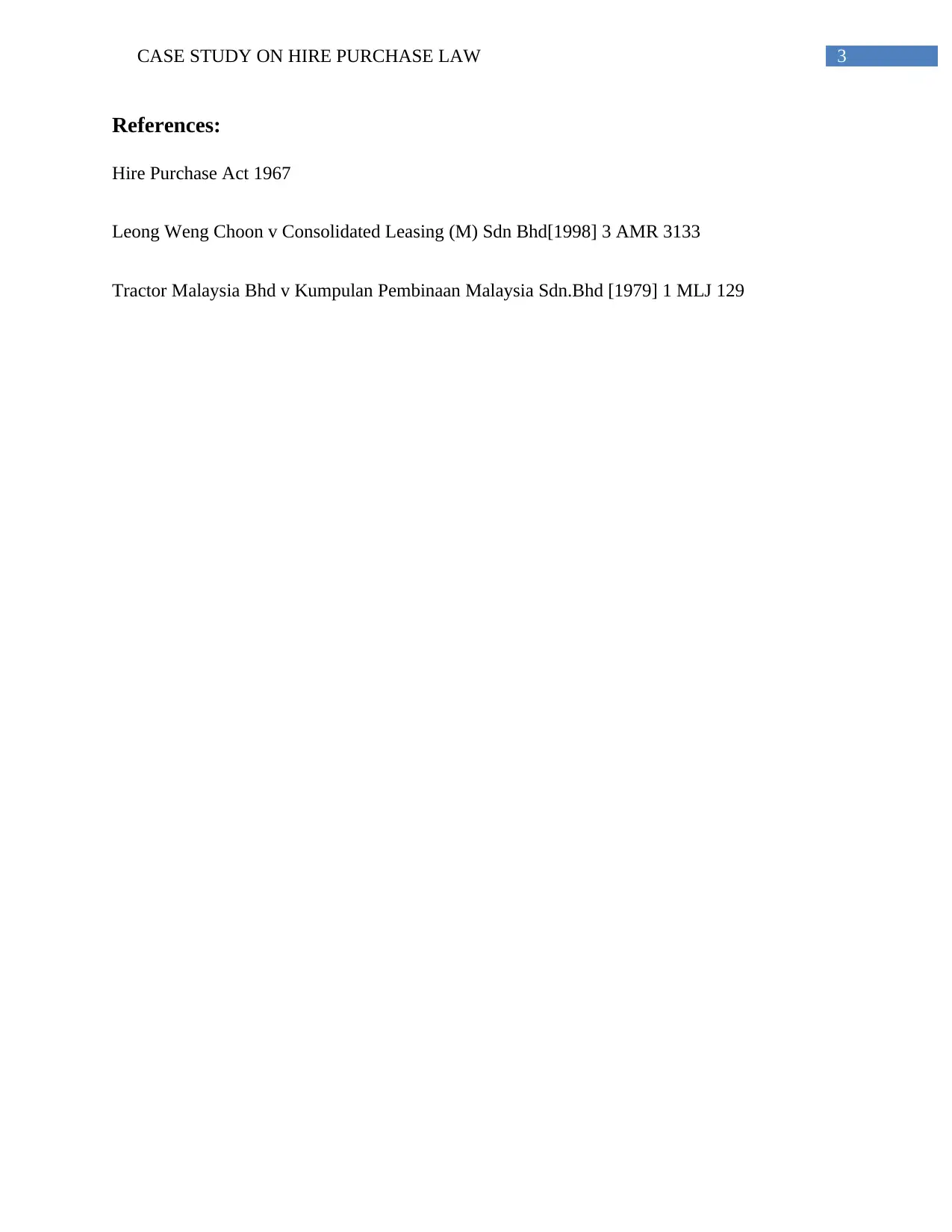Analysis of Cyclops's Hire Purchase Agreement and the Law
VerifiedAdded on 2023/04/11
|4
|563
|305
Case Study
AI Summary
This case study examines a hire purchase agreement involving Cyclops and a car purchased from Goody. The analysis focuses on the Hire Purchase Act 1967, specifically addressing the consequences of Cyclops's inability to pay installments after being terminated from his job. The case study explores the rights and obligations of both the owner (Goody) and the hirer (Cyclops), including the process of repossession and the options available to Cyclops to retain possession of the car. The study highlights the importance of timely payments and the potential for Cyclops to either pay the due installments or repay the loan in full to avoid repossession. The conclusion summarizes the two primary options available to Cyclops under the Act, emphasizing the financial benefits of repaying the loan entirely. The case study references relevant legal precedents and provisions of the Hire Purchase Act 1967 to support its analysis.
1 out of 4









![[object Object]](/_next/static/media/star-bottom.7253800d.svg)